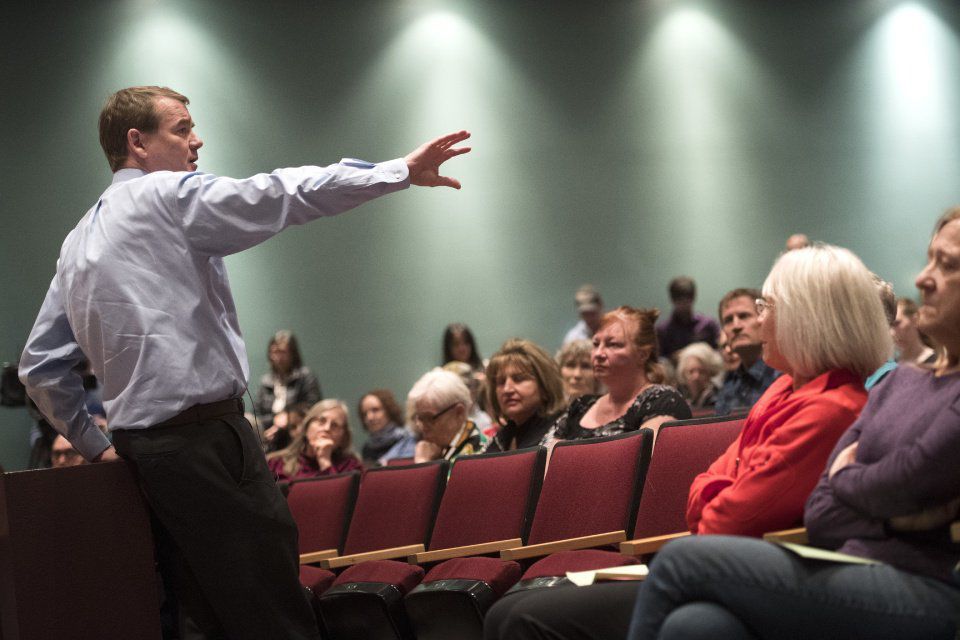Ortiz scores hat trick on wheelchair and assistive technology bills
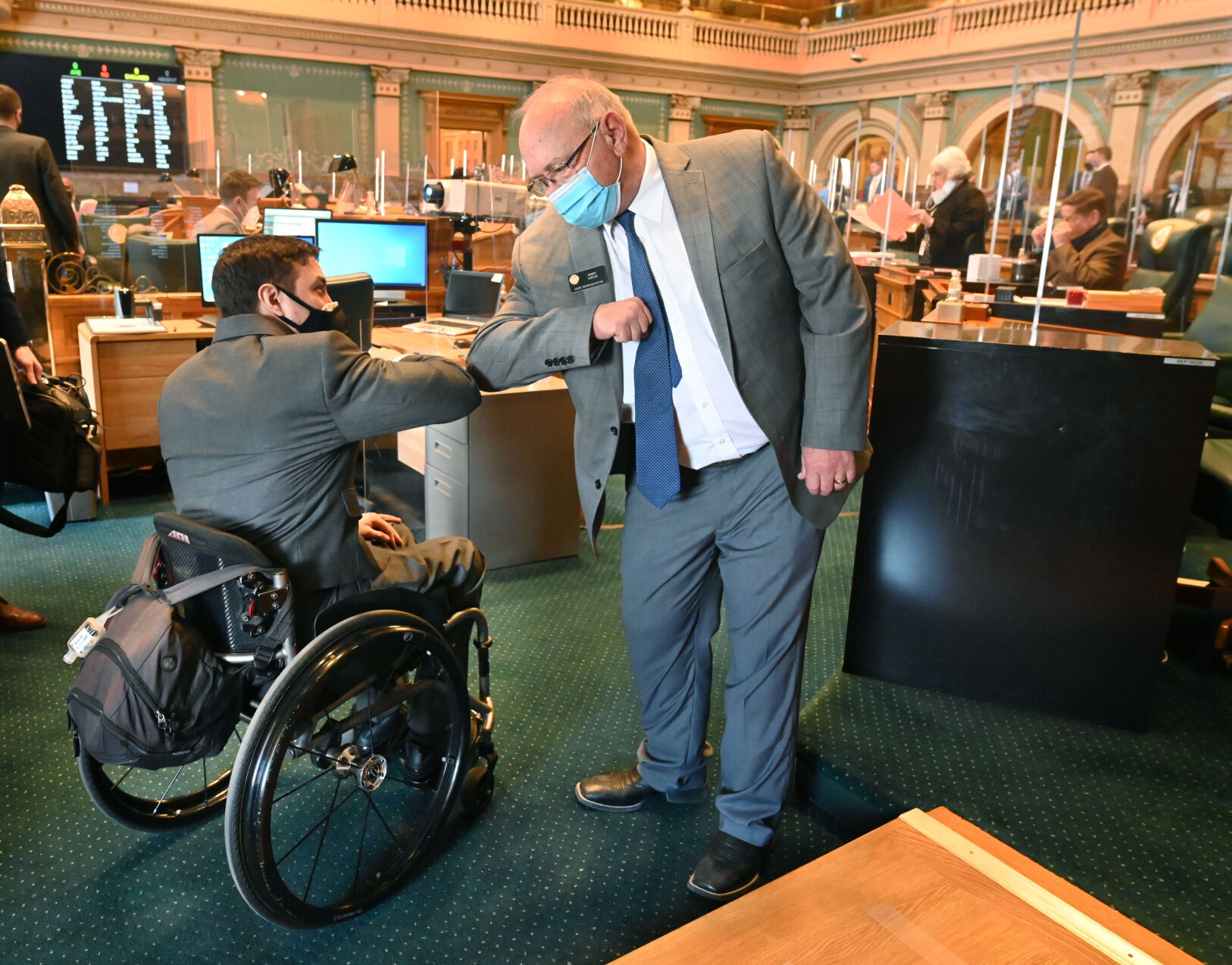
Rep. David Ortiz, D-Littleton, on Tuesday told a panel of legislators he remembers the first time he saw his first wheelchair shortly after a helicopter he piloted in Afghanistan crashed, rendering him a paraplegic.
For a man who ran a five-minute mile prior to the crash, “I wanted nothing to do” with that chair, Ortiz said.
Now, that chair represents freedom, safety and health and not just a means to get around, he said. Ortiz added that chairs are custom measured, support the back depending on level of injury and prevent pressure ulcers. When this equipment breaks, “it’s your life,” not just a way to get around, he said, adding, “You can’t go three to six months” with a chair out of service, which results in weight gain, urinary tract infections and pressure ulcers.
Ortiz gave the testimony in support of legislation that he and others argue would make life just a bit easier for those who use assistive technologies, such as wheelchairs.
And the first wheelchair-bound lawmaker in Colorado scored a hat trick, successfully persuading committees to pass the three bills he sponsored on assistive technologies.
He’ll also become on Thursday the first person in a wheelchair to officiate the House Committee of the Whole, the second reading debate when lawmakers take turns running the House floor.
The House first had to make some adaptations to the speaker’s podium, a construction project last year that added a wheelchair lift.
Ortiz’ three bills on Tuesday were heard in three different committees throughout the day, two of them simultaneously.
His committee work started in the morning with House Bill 1290, a measure that strips the state Department of Health Care Policy and Financing (HCPF) from requiring prior authorization for Medicaid-paid repairs to wheelchairs. For rural Coloradans, the bill would increase the reimbursement rate for those repairs.
Rep. Brianna Titone, D-Arvada, the bill’s co-sponsor, told the House Health & Insurance Committee that, when someone needs a repair, it needs to be done quickly and without the back-and-forth and delays over authorization.
Under HB 1290, repair shops will have some responsibility to prove they are meeting standards – something the health care policy department will monitor, Titone said. The bill includes fines for those that fail to meet those standards.
The disability community is tired of excuses and wants better service, she said.
The health care policy department will work with the repair industry to work out any bugs, as the bill has a three-year implementation window, he said.
Representatives from the repair industry testified against the bill, largely because of the fines attached to the measures, and predicted those fines would drive companies out of business.
Jenny Siegle, a sports producer and power wheelchair user for 39 years, also expressed concerns about the fines.
“My equipment is very specific to my needs,” Siegle said, adding if the providers are not working on her chair because they’re concerned about the fines, that makes her nervous. She said that situation jeopardizes both her professional and personal life.
The committee also heard stories from those who have suffered health complications when their chairs didn’t get fixed on a timely basis.
Michael Neil, who represents the Colorado Cross-Disability Coalition, said he cannot sit in a regular wheelchair. His spinal curvature creates the potential for pressure sores. His provider adjusted his chair while it was under warranty but stopped when the warranty ran out last year, and eventually, he developed pressure injuries, he said. A year later, he’s still using equipment that he indicated could cause injury. Kenneth Maestas, who is also with the Cross-Disability Coalition, said authorization can take weeks or even months, even for something as simple as a battery replacement.
HB 1290 passed on an 8-3 vote and heads to the House Appropriations Committee.
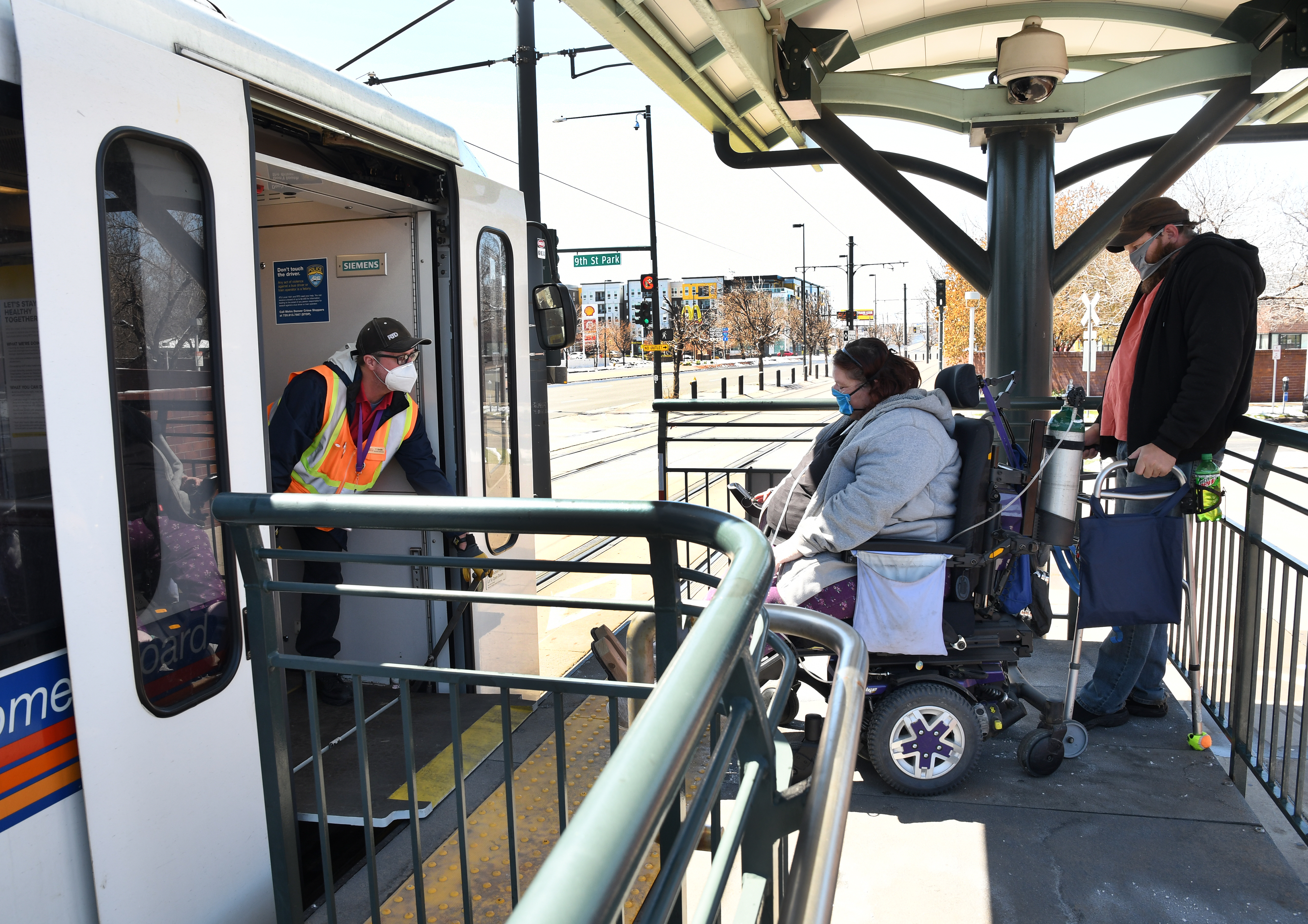
The second Ortiz-Titone sponsored bill, House Bill 1031, requires manufacturers of power wheelchairs to supply documentation and parts to independent repair shops. Currently, it’s usually only the manufacturer that can conduct those repairs. Under the bill, the manufacturer could face deceptive trade fines for refusing to supply the information or parts for those repairs.
The market monopolization by manufacturers “drives up costs for Coloradans and leaves them without their mobility device for longer,” according to a statement from Ortiz and Titone. HB 1031 would allow independent repair providers and owners to have the tools and manuals to perform regular maintenance, and diagnostic or repair service themselves, they said.
“This will save Coloradans money and allow them to get their mobility devices repaired sooner,” the duo added.
HB 1031 won an 11-1 vote from the House Public & Behavioral Health & Human Services Committee and is now headed to the full House.
Ortiz’ final bill of the day was in front of the House Transportation & Local Government Committee. Turning to motor vehicles leased or rented by those with disabilities, House Bill 1253 would require motor vehicle rental companies to provide vehicles with adaptive technology, such as hand controls, left foot accelerators, spinner knobs, and pedal extenders. Rental car companies that refuse could face civil penalties of up to $3,500. Like HB 1290, HB 1253 has a three-year implementation timeline.
This bill comes from his experiences and his adopted tribe – those who also live with disabilities, Ortiz said. When it comes to travel – he traveled across the country while working at Veteran’s Hospitals – renting a car is a necessity, he said. When someone shows up at a car rental and the rental agency doesn’t have the right car, it’s a simple matter to get into another car, but hat’s not the case for those who need adaptive technologies to operate a motor vehicle, Ortiz said.
“You’d better plan far enough in advance” for that vehicle, he said, referring to a required 48-hour advance notice. Rental car companies are able to customize rentals, such as for ski equipment, or for Sirius radio, but individuals can’t reserve right-side hand controls online, he said.
“You have to contact a disability specialist,” and that sometimes results in someone who impugns his dignity, according to Ortiz.
The 48-hour reservation requirement will remain in place, and those that need more time to add controls, the reservation timeline would be extended 72 hours, according to the bill.
How the bill would affect small companies in rural Colorado is a concern for Rep. Tonya Van Beber, R-Eaton. Ortiz said he would be open to language setting up a longer implementation timeline for small companies.
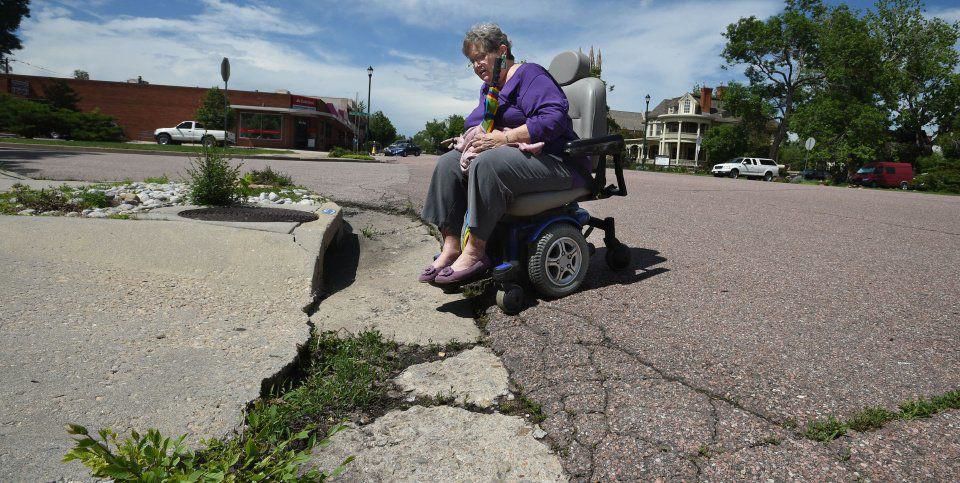
“My intent is not to drive companies out of business,” Ortiz said.
Meegan Wood-Trombley, the controller for Enterprise of Denver, said her company is the only one that services remote communities and non-airport locations. She said Enterprise supports the effort but asks for amendments to account for the practical realities of installing adaptive technology in their vehicles. Few vehicles are compatible with hand controls, she said.
“Hand controls cannot be installed in vehicles with knee-bolstering airbags because the controls can be shattered in an accident,” she said, turning it into a safety issue.
The committee adopted an amendment to grant more time for installation of hand controls and modified the bill’s section on penalties from $3,500 to $2,500, although Wood-Trombley and others suggested a penalty of $500 would be more appropriate.
Kevin Ogar, a wheelchair user and Cross-Fit trainer who travels 46 to 48 weekends annually, said he tries to rent cars but has been told multiple times by rental car agencies to go somewhere else. Recently, he was given a lifted-truck, which he couldn’t get into because his legs don’t work, he said. It’s cost him jobs and money, and his company has to limit where he travels to because he can’t get a rental car, he added.
“They want to argue about money but they’re arguing about whether I’m a human being and can work for a living,” he said, calling it “reprehensible.”
“I wish they’d treat us like customers” and not a nuisance, Ogar added.
HB 1031 passed on a 9-4 vote and its next destination is the full House for debate.


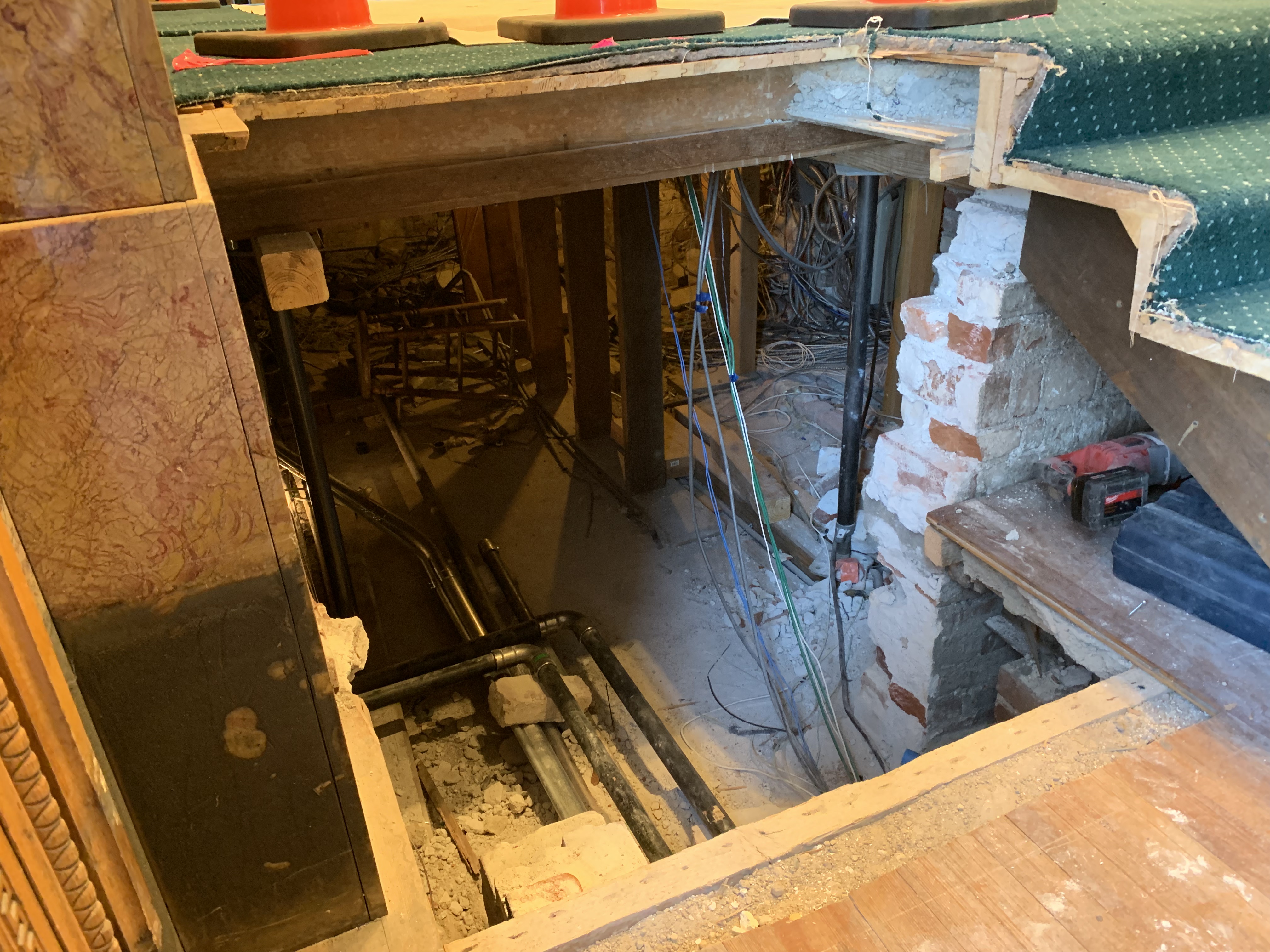
marianne.goodland@coloradopolitics.com





